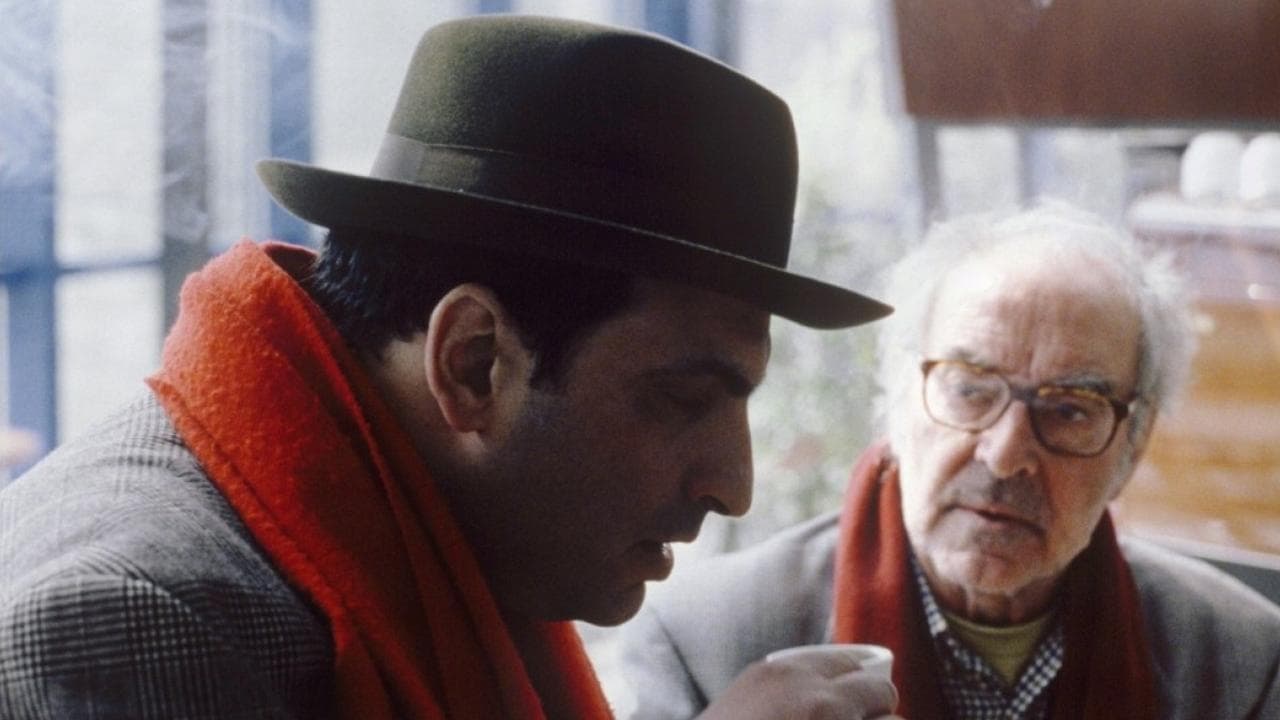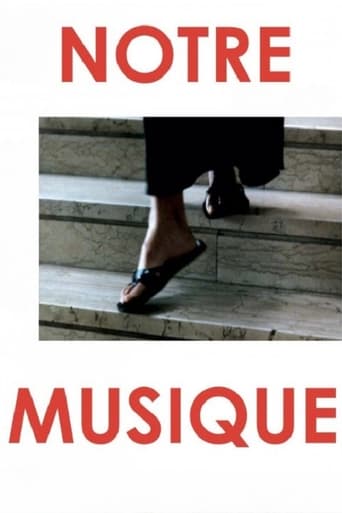

Purely Joyful Movie!
... View MoreI cannot think of one single thing that I would change about this film. The acting is incomparable, the directing deft, and the writing poignantly brilliant.
... View Morean ambitious but ultimately ineffective debut endeavor.
... View MoreThere is definitely an excellent idea hidden in the background of the film. Unfortunately, it's difficult to find it.
... View MoreThis is not entertainment...I'd seen Contempt (1963) and Breathless (1960) many years ago and thoroughly enjoyed both. After 1964, I sort missed all that he directed until now, which appeared on late-night TV. And no wonder it was on so late at night...It seems that, as many of us get older and maybe wiser, we like to expound on things philosophical. Bergman did it well, and without resorting to didactic circularity or confusion and still managed to tell a good story. Woody Allen uses satire brilliantly for the same purpose.However, Godard here uses the bare bones of a simple, quasi-documentary style story and one that it episodically fractured and with much symbolism to reflect upon 'what it all means': that is, life, death and the whole damn thing. Using the current Israeli problem with Palestine and vice-versa, he explores the three concepts of Hell, Purgatory and Heaven, using each to show what humanity has done, what it's doing and where it should be going, respectively.The first, Hell, is obvious: with a montage of cuts from a multitude of news and film clips, Godard shows us the extent to which we prey upon each other even as we pray for each other. So, there are some real all too real scenes of the dead, the dying and the executed during the many wars that have been documented during the last hundred years or so. Nothing new here at all...The second, Purgatory (a place for waiting), is well an exposition about waiting: waiting for a bus, for a train, for a plane, for a meeting to start, for a bridge to be rebuilt, for a nation to recover from war, for people to begin to understand each other. And this is all done within the thin framework of the story of Olga (Nade Dieu), the Jewish journalist from Tel Aviv who is attending a lecture by Godard (playing himself) in Sarajevo, and who is trying to understand why human problems cannot seem to be resolved, no matter what. Significantly, by choosing just Olga, Godard has certainly brought his philosophy to a very personal level, and one with which we can all identify, more or less.All of that is rendered moot when Olga appears to commit an unspeakable act when she returns to Tel Aviv. Perhaps Godard should have told her that it's not the end that matters but the journey to achieve that end?The third the shortest vignette is our final destination: as a prisoner of Nature, complete with - American! - border guards who let Olga through to join the happy throng. Essentially: strip off civilization and return to our basics to find out who we really are...I think I'll stick with tackling prejudice, reducing global warming and trying to make a positive difference rather than taking Olga's choice.It's well filmed, as you'd expect from Godard; the music is, at times, quite beautiful to hear; and the Sarajevo mise-en-scene is a stark reminder of our collective sins. An annoying aspect for me, however, is that not all dialog was translated and subtitled; perhaps it wasn't necessary? So, while interesting visually and aurally, I'd recommend this only for those who like to reflect upon existential problems within philosophy.
... View More"Notre Music" is a very ambitious, pretentious and hermetic Jean-Luc Godard's film, divided in three kingdoms: Hell, Purgatory and Paradise like in the Dante's Inferno in the Divine Comedy. Hell shows footages of many wars; Purgatory mixes reality and fiction in Sarajevo; and Paradise is a surrealistic view of a beach "protected" by the American Marines.I found this movie absolutely boring. It seems that Godard wants to challenge the intelligence of the viewers, since to understand his movies the viewer needs to read or listen to his interviews. I respect those who like this French director, but they have to agree that "Notre Musique" is only recommended for fans of Godard and pseudo-intellectuals (there are a lot of them ). My vote is four.Title (Brazil): "Nossa Música" ("Our Music")
... View MoreThis film may be, at first at least, a little bemusing. Goddard does whirl you around with unanswerable questions with few solutions, but isn't the fact that hes at least asking enough?Goddards film reviews society as it is today : transitional and incoherent to the everyday citizen. War, Racism, Anger and Hate fill our land, and Goddards questioning of all these social factors creates an intriguing film. There is no narrative, Goddard simply works with film, digital imagery, voice-overs and art (yes, art...) to convey his viewpoint."Cinema is the light that shines on to our night"...
... View MoreLeave it up to Monsieur Godard to shoot his first film to directly address the Palastineans since Ici et ailleurs in '76 in Sarajevo with a cast that includes US Marines, Native Americans in full traditional regalia, and Godard himself in counter-sermonizing flesh. At least, and this is much more than trivial record keeping, the maestro has found a way to render his digital photography as gorgeous as the celluloid variety for which he is well known. The quality of the video images takes Notre Musique miles beyond the wan DV sections in Éloge de l'amour. This is all the more interesting considering his response, during the film's central writer's conference, to a question concerning whether or not digital cameras can save cinema. Godard stares into his DV lense and says nothing; the question cannot have an answer other than the one to be provided, immanently, vis-a-vis the unwinding of our collective species activity. Godard, as always, is best when he resists the unavailing temptation to answer the questions which constitute him as one of the most compelling artists of the 20th Century. Though his autodidactic flights of fancy may fail to soar as solidly as before, his discourses remain ultimately profound, his metaphors as unstintingly powerful as ever, his plagiarism as unflappable. He has begun to rely again on Borges, which is always good, and there is much less Merleau-Ponty. The only major flaw of the film is the opening section "Hell" (yes, Dante is backstage here folks), in which the montage is more of a groantage, in the manner of a Baraka (God no!) more than anything Eisenstein might recognize as dialectical. "Heaven", however, is wonderful. All Godard does is take the US Marine anthem at its word.
... View More